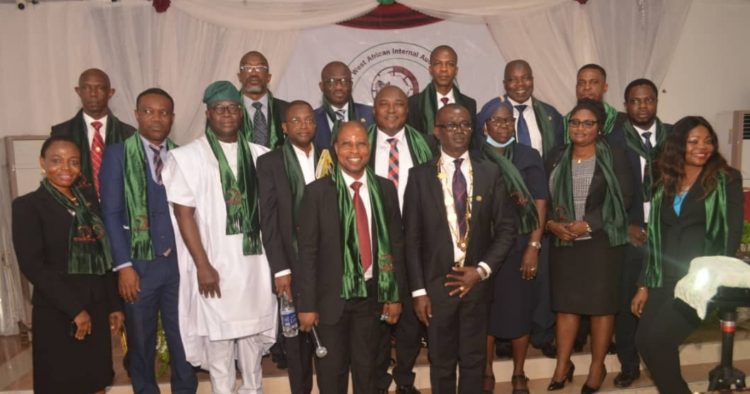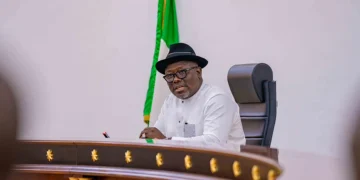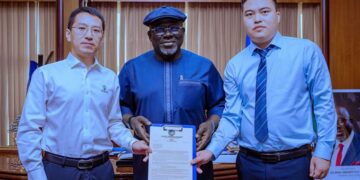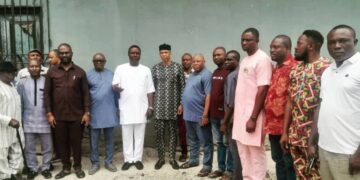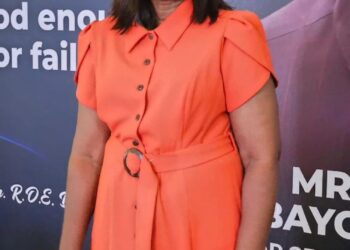Nigerians have been called upon to refrain from aiding and abetting corruption by refusing to give and receive bribes or participate in every manner of corrupt practices.
This was one of the resolutions at the inaugural induction, investiture and fellowship award dialogue of the Society for West African Internal Audit Practitioners (SWAIAP) on Saturday at the Lagos Airport Hotel, Ikeja, Lagos.
President of the Society, Patrick Nzechukwu said that the dialogue, with the theme “Internal Auditing: Effective Tool for Anti-Corruption, Risk Management Controls and Corporate Governance”, was apt as corruption continues to ravage many nations of the world including Nigeria.
He said that SWAIAP was established in June 2018 with the objective of institutionalising internal auditing in West Africa as a major tool for anti-corruption campaigns as well as mitigation of inefficiency, ineffectiveness, wastes and other forms of financial and non-financial risk.
It was also conceived to “improve business processes and performance” in both private and public sectors, he said.
Moreover, he queried Nigerian employers’ preference for international certifications while Nigerians were doing better than their counterparts globally.
Nzechukwu said, “We are committed to educating internal auditors on global best practices with emphasis on effective corporate governance, risk management system and adequate internal control and compliance and virile reporting systems, and informing stakeholders on the imperatives of effective internal auditing in West Africa.”
Chairman of the occasion, Gbolahan Oyegoke, commended SWAIAP for the focus of the national dialogue, adding that Internal Auditors hardly have friends within an organisation due to professional discipline and anti-corruption stance.
He said that the best approach to fighting corruption was to prevent it from happening, urging practitioners to be proactive at all times.
“An internal auditor is caught between management who wants you to catch thieves and the staff whom the internal auditors want all processes to be followed.
“The destiny of organisations rests on your capacity and capabilities because when everything moves on fine nobody cares about you but when there is an error you will be held liable,” he added.
Executive Secretary, Nigeria Extractive Industries Transparency Initiative, NEITI, Dr Orji Ogbonnaya Orji, said that Nigeria was struggling to curb corruption in all sectors of the nation’s economy.
Represented by Alhaji Abdulraheem Usman, the NEITI boss called on staff of Internal Control in organisations to build capacity in the use of modern auditing software in order to effectively block leakages and proactively build defence systems against fraud.
He said that there was need for organisations to embrace and deploy technology and modern audit software to aid their internal control mechanisms.
Orji said, “For every organisation which intends to achieve its set objectives, the five components of a good internal control as set by Committee for Sponsoring Organisation (COSO) framework must be adhered to.
“The framework, which includes Control Environment, Risk Management, Control Activities, Information and Communication and Monitoring must be taken into consideration to curb malfeasance in any typical organisation.
“Internal Control must also ensure that Management adheres to laid down rules, regulations and policies.”
Guest Speaker and Managing Director of Neimeth International Pharmaceuticals Plc, Pharm. Matthew Azoji called on Nigerians to firmly resolve to not be a giver nor a receiver of bribes and corruption will die.
He said that Internal Auditors should report to the Board Committees of companies to fight against administrative corruption from management.
Quoting from the World Bank definition of corruption, Pharm Azoji said corruption is the wrong use of Public Office for personal gain.
The Neimeth boss stressed that corruption had a devastating impact on society by hampering human, infrastructural and economic development and called on the National Assembly to enact internal auditing law to check and prevent the occurrence of fraud.
“As Nigeria continues to fight corruption in both private and public sectors, it is imperative that stakeholders would continue to support efforts like SWAIAP to ensure that corruption is exterminated in the country.
“Huge resources meant for development of nations are lost annually, therefore, hampering governments’ lifting of citizens from poverty.
“Corruption truncates access to education, which leads to inequality and leads to increased cost of doing business by as much as 10 percent,” Azoji said.
He called on Nigerians to join the government in fighting corruption, adding “when our Corruption Perception Index improves, we attract more foreign direct investments which will bring more opportunities for employment”.
Associate Professor of Accounting and Head Department of Accounting and Finance, Delta State University, Abraka, Dr Edirin Jeroh, in his presentation called on SWAIAP to champion the call for the development of solid organisational culture and design of a rigorous framework on governance that will help to improve on the fight against corruption in Nigeria and West Africa.
“Governments should embrace participatory budgeting and citizens engagement and I urge Internal Auditors to constantly evaluate corruption and bribery risks through the inclusion of specific working procedures in the internal control framework of organisations. Evaluate incentives for compliance and disciplinary procedures for non-compliance,” Jeroh noted.
The highlight of the ceremony was the investiture of Mazi Patrick Nzechukwu as the first President of the Society and the induction of Fellows, Certified and Associate members.


